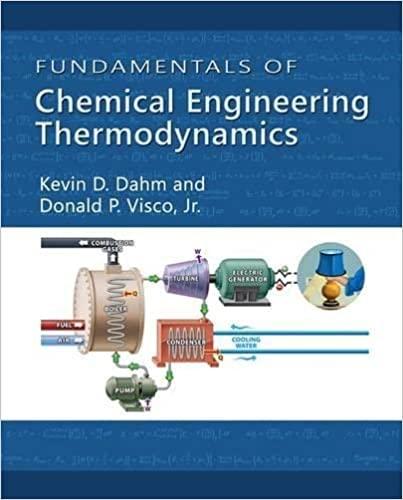A rockets payload (everything EXCEPT fuel) has a mass of 10,000 kg and C V = 2.5
Question:
A rocket’s payload (everything EXCEPT fuel) has a mass of 10,000 kg and CV = 2.5 kJ/kg · K. Initially, the rocket is at rest at ground level, is at ambient temperature (T = 258C) and pressure (P 5 1 bar), and contains the payload plus 100,000 kg of rocket fuel. The fuel has a specific enthalpy of formation H = 1000 kJ/kg, using the same reference state that is used for the data in Appendix C.The fuel burns to completion, and the emitted exhaust consists of 30,000 kg water vapor and 70,000 kg carbon dioxide. The exhaust leaves at T = 25°C and P = 1 bar and has a velocity of 3 km/s. When the last of the fuel is consumed, the rocket is 5 km above the Earth, and the payload has T = 250°C. What is its velocity at this point? Exhaust is released continuously as the rocket climbs, but a large fraction of the fuel burns close to the ground. Assume the average height at which the exhaust is released is 0.5 km. Assume further that the rocket is adiabatic and that it neither produces nor uses shaftwork.
Step by Step Answer:

Fundamentals Of Chemical Engineering Thermodynamics
ISBN: 9781111580704
1st Edition
Authors: Kevin D. Dahm, Donald P. Visco





